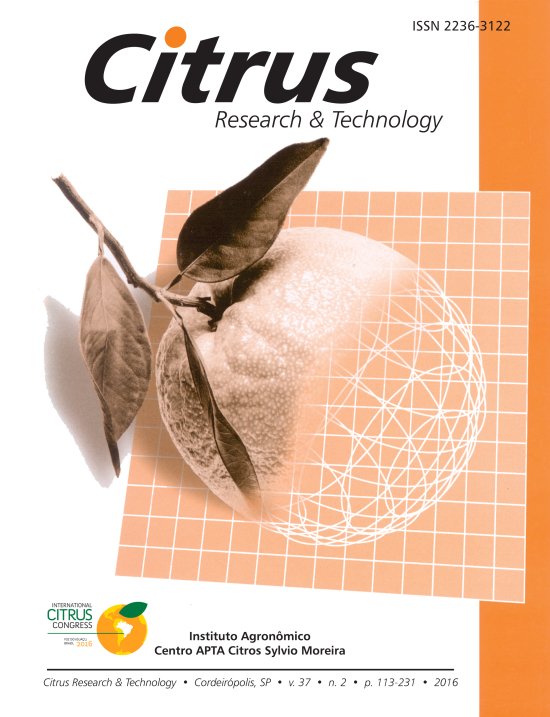Contributions of socio-environmental certification to the sustainability of the citrus industry in Brazil
Contribuições da certificação socioambiental para a sustentabilidade da citricultura brasileira
Luis Fernando Guedes Pinto, Alessandro Rodrigues, Daniella Macedo & Eduardo Augusto Girardi
Resumo
Socio-environmental certification is a market instrument with potential to drive changes towards sustainability. It is a recent phenomenon in the Brazilian citrus industry, but is likely to be a trend for the future of the sector. This study aims to identify the preliminary results of implementing a socio-environmental certification system in the Brazilian citrus industry by analyzing the profile of the first certified farms, their performance and areas of improvement to meet certification standards. We analyzed the audit report of the six citrus operations certified in Brazil under the SAN-Rainforest Alliance Certified™ with valid certificates in early 2013. It was observed that the production is conducted on large farms with production systems of great complexity, with risks to the environment and workers. However, the first implementation phase of certification indicates that the risks can be controlled and minimized and citrus production can be conducted in a responsible manner, contributing to the conservation of natural resources and the provision of decent and safe working conditions. Continuous improvement resulted from certification can lead the industry to a new level of sustainability.
Palavras-chave
Abstract
A certificação socioambiental é um instrumento de mercado com potencial para conduzir mudanças rumo à sustentabilidade. É um fenômeno recente na citricultura brasileira, mas deve ser uma tendência para o futuro do setor. Objetivou-se com esse trabalho identificar os resultados preliminares da implementação de um sistema de certificação socioambiental na citricultura brasileira, analisando o perfil dos primeiros empreendimentos certificados, o seu desempenho socioambiental e as áreas de melhoria para atendimento dos padrões de certificação. Analisaramse os relatórios de auditorias dos seis primeiros empreendimentos citrícolas certificados no Brasil e com certificados válidos pelo sistema da RAS-Rainforest Alliance Certified™ no início de 2013. Observou-se que a produção é feita em grandes propriedades e com sistemas de produção de grande complexidade, com riscos para o meio ambiente e para os trabalhadores. Todavia, a primeira fase de implementação da certificação indica que os riscos podem ser controlados e minimizados e a citricultura pode ser conduzida de maneira responsável, contribuindo para a conservação dos recursos naturais e o fornecimento de condições dignas e seguras de trabalho. A melhoria contínua decorrente da certificação pode conduzir o setor a um novo patamar de sustentabilidade.

